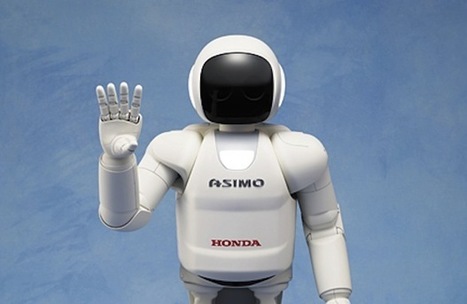On the Internet, we’ve reached a tipping point where more than 50% of all Internet traffic is no longer generated by humans – instead, it's generated by a motley mix of search engine spiders, bots, scrapers, scammers, hackers and, yes, spies. We are no longer talking about the Internet, we are talking about the Bot Net – a “bot-mediated reality” where algorithms and bots influence where we go, how long we spend there and with whom we communicate.
Research and publish the best content.
Get Started for FREE
Sign up with Facebook Sign up with X
I don't have a Facebook or a X account
Already have an account: Login

 Your new post is loading... Your new post is loading...
 Your new post is loading... Your new post is loading...
|
|












